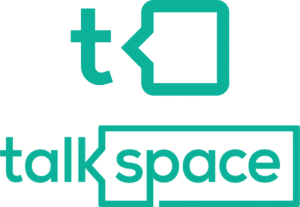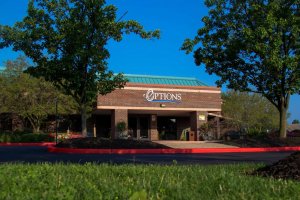Insomnia
The Connection Between Insomnia And Addiction
In today’s modern world, insomnia is relatively common. At least 25% of Americans experience symptoms of the disorder each year. Considering the stress of working long hours, constantly being connected via smartphones, and having to afford a high cost of living, it’s no wonder that sleep evades a large portion of the population. These problems are magnified when insomnia and addiction are present at the same time.
Addiction and insomnia frequently co-exist, as lack of sleep creates multiple physical and emotional issues that some individuals will attempt to self-medicate with drugs or alcohol. According to the Centers for Disease Control and Prevention (CDC), about half of the people that suffer from sleep disorders and regularly abuse alcohol and/or Narcotic drugs do so in order to enhance sleep.
Additionally, insomnia is one of the most common complaints among patients in recovery from a substance use disorder (SUD). Both continued abuse of and sustained abstinence from a substance alter sleep patterns, and this change can cause some recovering users to suffer from insomnia for days or even weeks. Many experience such intense insomnia that it prompts them to relapse just so they are able to sleep. This is especially true for those with an alcohol use disorder (AUD) and those that are addicted to Benzodiazepines, as they start drinking or using again because they believe that the sedative effects will help them sleep normally.
Try Online Therapy

Get professional help from an addiction and mental health counselor from BetterHelp by phone, video, or live-chat.
Take the Quiz. Get Matched. Begin Therapy.

Online therapy can help you with long term addiction support. Connect with a therapist from Talkspace anytime, anywhere.
Get matched with a therapist now.
Paid Advertising. We may receive advertising fees if you follow links to promoted online therapy websites.
What Is Insomnia?
Insomnia is a common sleep disorder that regularly affects millions of Americans each year. Insomnia can make it hard for someone to fall asleep or to stay asleep; it can also cause an individual to wake up too early and not be able to get back to sleep. The disorder significantly affects a person’s mood, psychological state, and ability to function during the day.
There are two types of insomnia: acute insomnia and chronic insomnia. Acute insomnia occurs when symptoms last only a few nights; it often happens because of life circumstances, such as not being able to fall asleep due to a big exam the next morning. This type of insomnia is extremely common, and many people have experienced it at least once. Chronic insomnia, on the other hand, is disrupted sleep that occurs at least 3 nights per week and lasts for at least 3 months. Unlike the causes of the acute condition, the underlying causes of chronic insomnia are often linked to other medical or psychiatric issues.
Causes Of Insomnia
Insomnia can be the result of stress, life events, or habits that disrupt sleep. Although emotional issues are typically the culprit behind the majority of insomnia cases, simple daytime habits such as drinking too much Caffeine can also disrupt circadian rhythm and cause insufficient sleep.
The most common causes of insomnia include:
- Travel and/or work schedule
- Poor sleeping habits
- Stress
- Eating too much too late in the evening
- Other mental health disorders (e.g., depression or anxiety)
- Medications
- Other sleep-related disorders (e.g., sleep apnea)
- Using Caffeine, Nicotine and/or alcohol late in the evening
Check if my insurance covers rehab
Addiction Center is not affiliated with any insurance.
Insomnia As A Co-Occurring Disorder
People who suffer from sleep disorders are 5-10 times more likely to also be diagnosed with an SUD than those without sleep disorders. Many attribute this to the availability of sleeping aids and the false belief that insomnia can be resolved by self-medicating with drugs and alcohol.
Sleeping Pills, such as Ambien and Lunesta, are frequently prescribed for short-term relief from insomnia and other sleep disorders. However, these drugs are extremely addictive and present a high potential for abuse. Many become dependent on the pills and then use them beyond their prescribed intent for continued relief. Many people with insomnia don’t realize that they have become addicted to sleeping aids until they stop taking their medication and begin to experience symptoms of withdrawal. This makes substance abuse recovery for insomniacs even harder, as they often will suffer from “rebound insomnia” when attempting to quit; they may also experience a compounded insomnia that is even worse than their previous condition.
Common Questions About Rehab
Addiction to alcohol in insomniacs occurs for a similar reason, as many will use alcohol for its sedative effects in order to induce sleep. However, this is an ill-informed decision; the effects of continued alcohol abuse are usually more harmful and detrimental to the natural sleep cycle. Alcohol actually exacerbates insomnia symptoms; a vicious cycle of increased alcohol use and ever-worsening insomnia then develops. This often turns into a full-blown addiction. In fact, some studies indicate that alcohol consumption near bedtime interrupts the REM cycle of sleep and never allows the user to get to a state of restorative sleep.
Use of electronics is on the rise, and that is impacting insomnia. Use of electronic devices before bed can increase the likelihood of interrupted sleep, as the blue light of the device confuses the brain.
Looking for a place to start?
Join the thousands of people that have called a treatment provider for rehab information.
Free and confidential
Available 24/7
Access to professional treatment
Insomnia And Addiction Treatment
Co-occurring sleep disorders and SUDs are very treatable, and a multi-disciplinary approach that simultaneously addresses both disorders has proven to be particularly successful. If you’re someone that has been struggling with insomnia and uses drugs or alcohol in an attempt to treat insomnia, know that you are not alone and that there are multiple treatment options available to you. If you’re interested in learning more information about online therapy options, click here.
Try Online Therapy

Get professional help from an addiction and mental health counselor from BetterHelp by phone, video, or live-chat.
Take the Quiz. Get Matched. Begin Therapy.

Online therapy can help you with long term addiction support. Connect with a therapist from Talkspace anytime, anywhere.
Get matched with a therapist now.

Begin making positive changes with Online-Therapy.com. Quality online therapy, from the comfort of home.
Answer a few questions to get started.
Paid Advertising. We may receive advertising fees if you follow links to promoted online therapy websites.
Published:
Author
Jena Hilliard

-
Jena Hilliard earned her Bachelor’s of Arts degree from the University of Central Florida in English Literature. She has always had a passion for literature and the written word. Upon graduation, Jena found her purpose in educating the public on addiction and helping those that struggle with substance dependency find the best treatment options available.
- More from Jena Hilliard
Reviewed by Certified Addiction Professional:
David Hampton

A survivor of addiction himself, David Hampton is a Certified Professional Recovery Coach (CPRC) and a member of the National Association of Alcohol and Drug Abuse Counselors (NAADAC).
- More from David Hampton
Sources


Recovery Starts Today
Call Now For Addiction Support

Newport Institute for Young Adults
Monticello , MN


Timberline Knolls Treatment Center for Women
Lemont , IL


Boca Recovery Center – Indiana
Bloomington , IN

Options Behavioral Health Hospital
Indianapolis , IN

Ridgeview Behavioral Hospital
Middle Point , OH


Georgetown Behavioral Hospital
Georgetown , OH


Ohio Hospital for Psychiatry
Columbus , OH


New Hope Healthcare Institute
Knoxville , TN

New Hope Healthcare – Teen Rehab
Knoxville , TN

Village Behavioral Health Treatment Center
Louisville , TN

Symetria Recovery – Fort Worth
Fort Worth , TX